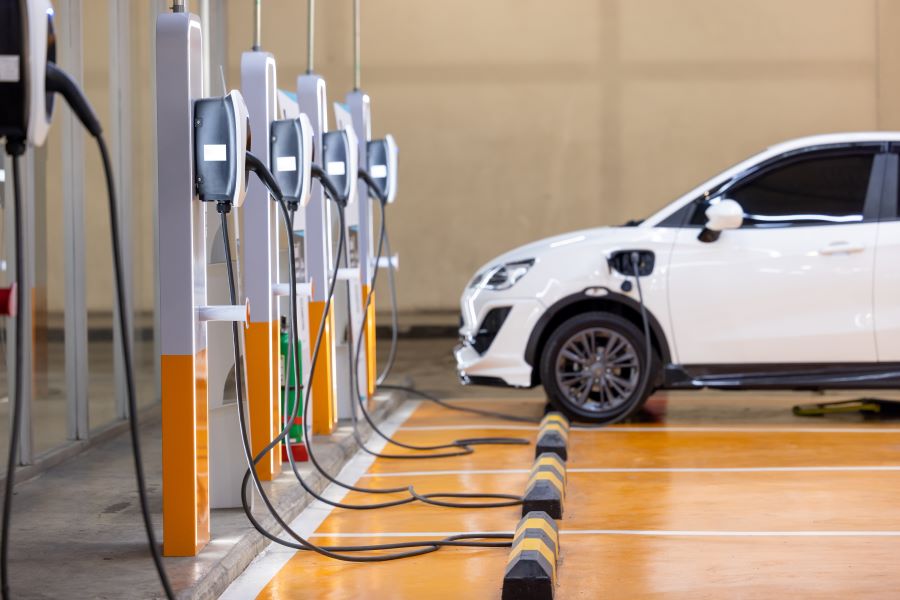Understanding Electric Vehicle Diagnostic Procedures
Electric vehicles represent a significant shift in automotive technology, requiring specialized diagnostic approaches that differ substantially from traditional combustion engines. Modern electric cars utilize complex electronic systems, battery management technologies, and sophisticated software that demand specific expertise and equipment for proper assessment. Understanding these diagnostic procedures is essential for vehicle owners, technicians, and anyone involved in the electric vehicle ecosystem to ensure optimal performance and safety.

What Makes Electric Vehicle Diagnostics Different
Electric vehicle diagnostics involve analyzing sophisticated computer systems that manage everything from battery performance to regenerative braking. Unlike traditional vehicles that rely primarily on mechanical components, electric cars depend heavily on electronic control units, sensors, and software algorithms. These systems continuously monitor battery health, motor efficiency, charging performance, and thermal management, creating vast amounts of data that require specialized interpretation.
The diagnostic process begins with connecting advanced scanning tools specifically designed for electric vehicles. These tools can access multiple control modules simultaneously, reading fault codes, live data streams, and system parameters that traditional automotive scanners cannot interpret. Technicians must understand high-voltage safety protocols, as electric vehicles operate at voltages that can exceed 400 volts in some systems.
Electric Car Repair Procedures and Safety Protocols
Safety remains the primary concern when diagnosing electric vehicles due to high-voltage components and specialized systems. Technicians must follow strict lockout procedures, use insulated tools, and wear appropriate personal protective equipment. The diagnostic process typically involves isolating the high-voltage system, verifying zero energy state, and then proceeding with systematic testing procedures.
Modern electric vehicles incorporate multiple diagnostic modes, including manufacturer-specific protocols and standardized OBD-II communications. Advanced diagnostic procedures may involve testing individual battery cells, analyzing motor performance curves, evaluating charging system efficiency, and assessing thermal management effectiveness. These procedures require specialized training and certification to perform safely and accurately.
Battery System Analysis and Performance Testing
Battery diagnostics represent the most critical aspect of electric vehicle maintenance, as the battery pack typically accounts for 30-40% of the vehicle’s total value. Diagnostic procedures include capacity testing, internal resistance measurements, cell voltage monitoring, and thermal analysis. Technicians use specialized equipment to perform load testing, which simulates real-world driving conditions to assess battery performance under stress.
Advanced diagnostic systems can identify failing cells within battery packs, predict remaining useful life, and recommend maintenance interventions. These procedures often involve connecting to the vehicle’s battery management system to access detailed cell-level data, temperature readings, and charging history. Understanding these parameters helps determine whether battery issues require cell replacement, pack reconditioning, or complete system replacement.
Motor and Power Electronics Diagnostics
Electric motor diagnostics focus on analyzing performance characteristics, efficiency ratings, and electronic control systems. Unlike combustion engines, electric motors have fewer moving parts but rely heavily on sophisticated electronic controllers. Diagnostic procedures include testing motor windings, analyzing power electronics performance, and evaluating regenerative braking systems.
The diagnostic process involves measuring motor current signatures, analyzing vibration patterns, and testing insulation resistance. Advanced procedures may include thermal imaging to identify hot spots, oscilloscope analysis of power waveforms, and comprehensive testing of the inverter systems that control motor operation. These diagnostics help identify issues before they result in complete system failure.
Charging System Evaluation and Troubleshooting
Charging system diagnostics encompass both onboard and external charging components. Procedures include testing the onboard charger, evaluating charging port connections, and analyzing communication between the vehicle and charging infrastructure. Technicians must understand various charging standards, including Level 1, Level 2, and DC fast charging protocols.
Diagnostic procedures involve measuring charging current, analyzing voltage regulation, and testing ground fault protection systems. Advanced diagnostics may include evaluating charging efficiency, testing thermal management during charging, and analyzing communication protocols between the vehicle and charging station. These procedures help identify issues that could affect charging speed, safety, or long-term battery health.
Cost Considerations and Service Provider Options
Electric vehicle diagnostic services vary significantly in cost depending on complexity, location, and required equipment. Basic diagnostic scans typically range from $150-300, while comprehensive battery analysis can cost $400-800. Advanced diagnostics involving specialized equipment or extensive testing may exceed $1,000.
| Service Type | Provider | Cost Estimation |
|---|---|---|
| Basic OBD Scan | Independent Shops | $150-250 |
| Battery Health Check | Tesla Service Centers | $300-500 |
| Comprehensive Diagnostics | Dealership Service | $400-800 |
| Specialized EV Diagnostics | EV-Certified Technicians | $500-1,200 |
| Emergency Diagnostics | Mobile EV Services | $200-400 |
Prices, rates, or cost estimates mentioned in this article are based on the latest available information but may change over time. Independent research is advised before making financial decisions.
Future Developments in Electric Vehicle Diagnostics
The evolution of electric vehicle technology continues to advance diagnostic capabilities through artificial intelligence, predictive analytics, and remote monitoring systems. Future diagnostic procedures will likely incorporate machine learning algorithms that can predict component failures, optimize performance parameters, and provide real-time health assessments.
Emerging diagnostic technologies include wireless monitoring systems, cloud-based analysis platforms, and augmented reality tools that guide technicians through complex procedures. These advancements will make diagnostics more accessible, accurate, and efficient while reducing the need for physical intervention in many diagnostic scenarios. Understanding these trends helps prepare for the continued evolution of electric vehicle maintenance and repair procedures.




